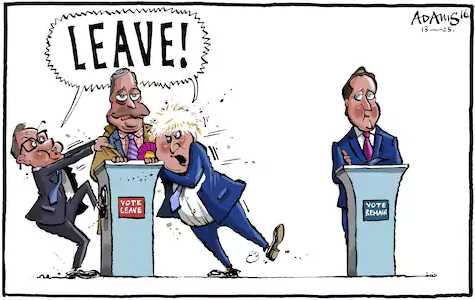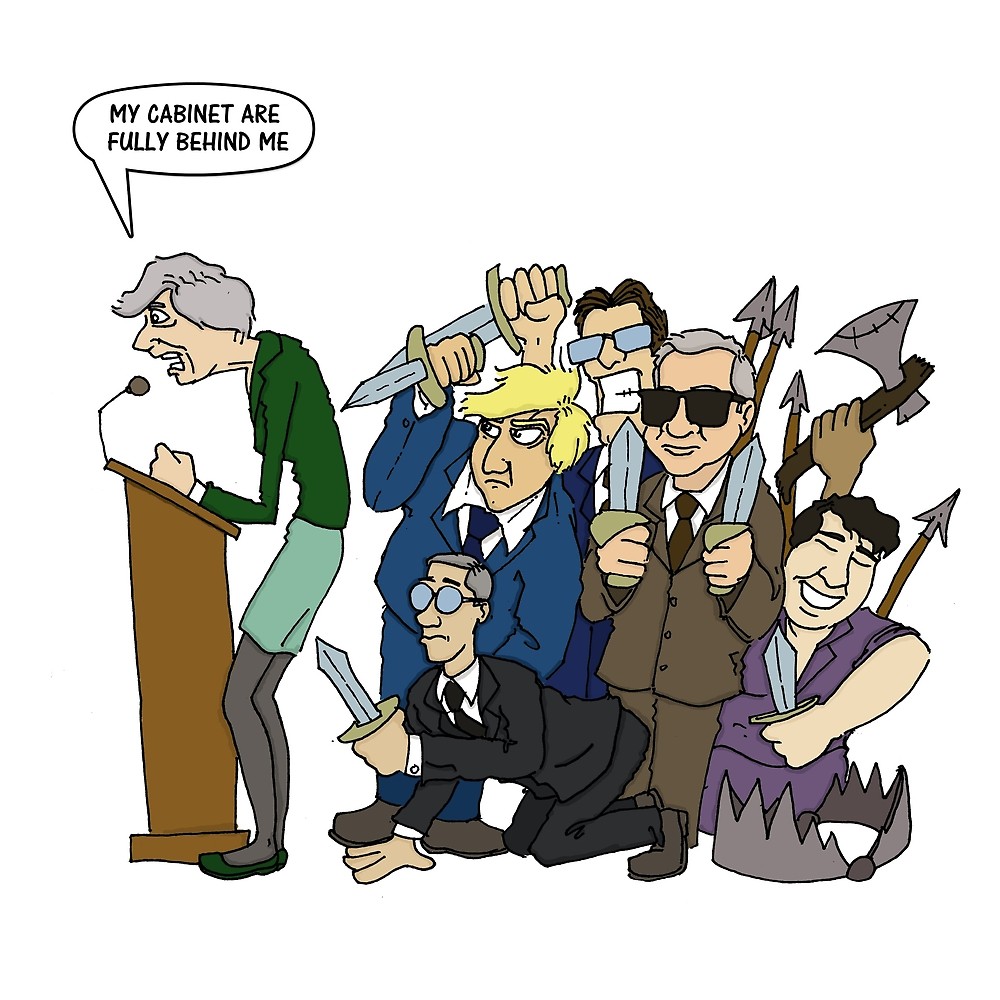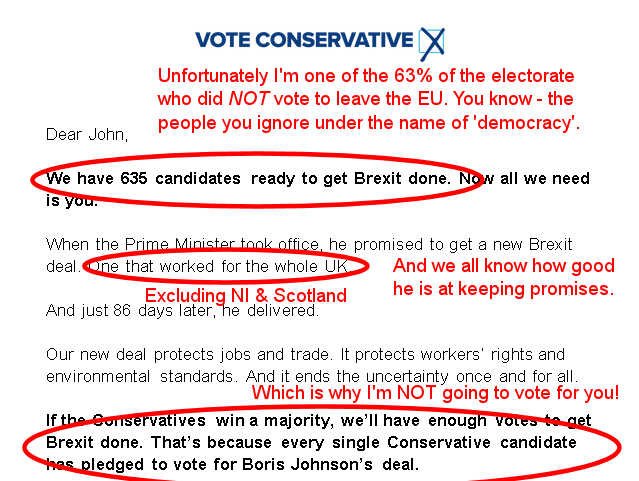
Let's take a look at that referendum result. Here are the detailed actual results:
37.44% of the electorate voted to leave the EU 17,410,742 in total and 51.9% of the vote.
34.71% of the electorate voted to remain in the EU 16,141,241 in total and 48.1% of the vote.
27.79% of the electorate didn't vote 12,922,659 in total.
0.06% of the electorate spoilt their voting papers 25,359 in total
England and Wales voted by a narrow majority to leave. Scotland and Northern Ireland voted by a significant majority to remain.(55:44 remain in NI; 62:38 remain in Scotland)
Now taking the overall results of the entire electorate I make that 37.44% of the electorate voted to leave the EU and 62.56% did not vote to leave the EU..
The sensible thing to have done would to have contacted the EU and said something like this:
"Although the referendum result indicated a 52/48 percent split, the number voting 'Leave' represented only 37% of the electorate. This is NOT a majority. Neither was there a majority in the 1975 referendum when 63% of voters chose to stay in the then Common Market. That represented only 43% of the electorate. The UK government does not accept that the wishes of a minority should be used to make decisions for the majority.
The referendum has caused a great deal of division in the UK population and in Parliament. It will very likely prove impossible to negotiate acceptable terms of leaving which Parliament will accept.We recognise that leaving without an agreed settlement will cause hardship in both the UK and in Europe.
We will now therefore use the result of the 2016 referendum as an indication that there is a great deal of dissatisfaction with the EU.. Over the next five years we will set up a commission to establish why so many in the UK are against our membership of the EU. We will work with the EU to fix those things that are perceived as wrong and at the end of that time will hold a further referendum. If 50+ percent of the electorate (not just those that vote) vote one way or another we will consider the matter resolved and take appropriate action."
Expecting sense from government unfortunately often leads to disappointment. David Cameron resigned as PM and it was left to Theresa May to try and sort out the mess. She decided to follow the wishes of that 37% minority. Naturally the country and Parliament was deeply divided on the issue.On 29 March 2017, the UK government formally began the process of withdrawal by submitting Article 50 and began the process of negotiating Brexit. She got nowhere, the only result being a sharp fall in the value of the pound. In an attempt to make progress in Parliament a snap general election was called in June 2017 but instead of gaining the majority she needed the country indicated its deep division and she lost the small majority she had! Propped up by the Northern Ireland DUP party she pressed on and negotiated a settlement with the EU which was promptly rejected by parliament. The pound fell further.
The problem was that the country had been given a binary choice in the referendum. Leave or Remain. In actual practice there were many more options. Here's six of them:
- Leave, and adopt a European Free Trade Agreement
- Leave, and adopt a World Trade Agreement
- Leave, while the UK remains intact
- Leave, while the UK splits up (Ireland and Scotland did not want to leave)
- Remain under current terms
- Remain for the present while attempting to 'fix' the EU.
It's significant too that the most vociferous campaigners on both sides of the debate are also wealthy. Having a few million pounds allows such people to make money as each Brexit crisis sweeps past the markets by selling stocks before each event and buying them back when the market price drops.

So what of the future? We have yet another postponement of Brexit and our PM has triggered yet another election. Again he says he hopes to obtain a majority to continue with his negotiated Brexit settlement but sorry - I for one don't believe him. Here's the latest message I received from the Conservative party who may well get another nasty shock.

Brexit isn't democracy!
No comments:
Post a Comment